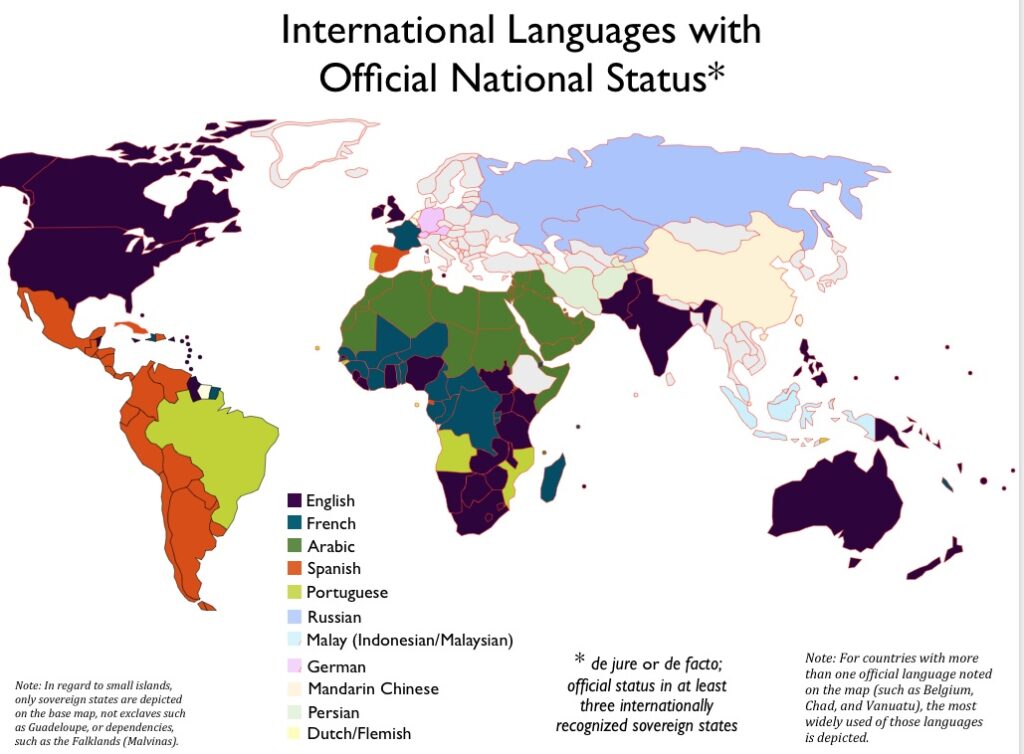Discover the World's Nationalities and Languages in English

As we live in an increasingly interconnected world, it's essential to understand and appreciate the diversity of cultures, nationalities, and languages that exist around the globe. In this article, we'll explore a variety of nationalities and languages, and how they shape the rich tapestry of human experience.
Nationalities
Nationality refers to the legal or cultural identity of a person or group of people. Here are some of the most commonly recognized nationalities around the world:
- American
- Chinese
- French
- German
- Indian
- Italian
- Japanese
- Mexican
- Russian
- Spanish
Each nationality has its unique history, traditions, and values that have shaped the identities of people belonging to them. Understanding and appreciating these differences can help us build bridges across cultures and promote empathy and understanding.
Languages
Language is a fundamental aspect of culture that shapes how people communicate and express themselves. Here are some of the most widely spoken languages in the world:
- English
- Mandarin Chinese
- Hindi
- Spanish
- Arabic
- Bengali
- Portuguese
- Russian
- Japanese
- German
English is the most widely spoken language globally, with over 1.5 billion people speaking it as a first or second language. Mandarin Chinese, Hindi, and Spanish are also widely spoken, with over 1 billion speakers. Arabic, Bengali, Portuguese, Russian, Japanese, and German round out the top ten most spoken languages in the world.
How Nationality and Language Shape Identity
Nationality and language are two essential factors that shape a person's identity. They influence how people see themselves and how others perceive them. Nationality and language can also impact a person's opportunities, experiences, and worldview.
For example, a person's nationality can affect their access to education, healthcare, and job opportunities, while their language can impact their ability to communicate with people from different cultures and countries.
Understanding how nationality and language shape identity can help us appreciate and celebrate diversity, as well as recognize and address issues related to inequality and discrimination.
Celebrating Diversity
Celebrating diversity means embracing the differences that make us unique and recognizing the value of different perspectives, experiences, and cultures. It involves being open-minded, respectful, and inclusive towards people from different nationalities and speaking different languages.
Some ways to celebrate diversity include:
- Learning about different cultures and traditions
- Trying new foods from different countries
- Attending cultural events and festivals
- Participating in language exchange programs
- Travelling to different countries
By celebrating diversity, we can build bridges across cultures, promote understanding and empathy, and create a more inclusive and harmonious world.
Conclusion
Nationality and language are two essential factors that shape a person's identity and impact their opportunities and experiences. Understanding and appreciating the diversity of nationalities and languages around the world can help us build bridges across cultures, promote empathy and understanding, and create a more inclusive and harmonious world.
Frequently Asked Questions
What is a nationality?
Nationality refers to the legal or cultural identity of a person or group of people. It is often based on factors such as birthplace, ancestry, or citizenship.
What is the most widely spoken language in the world?
English is the most widely spoken language in the world, with over 1.5 billion people speaking it as a first or second language.
How does language shape a person's identity?
Language is a fundamental aspect of culture that shapes how people communicate and express themselves. It can impact a person's opportunities, experiences, and worldview.
What are some ways to celebrate diversity?
Some ways to celebrate diversity include learning about different cultures and traditions, trying new foods from different countries, attending cultural events and festivals, participating in language exchange programs, and travelling to different countries.
Why is it important to celebrate diversity?
Celebrating diversity means embracing the differences that make us unique and recognizing the value of different perspectives, experiences, and cultures. It involves being open-minded, respectful, and inclusive towards people from different nationalities and speaking different languages. By celebrating diversity, we can create a more inclusive and harmonious world.
Deja una respuesta